- Home
- Неизвестный
The Seashell Anthology of Great Poetry Page 2
The Seashell Anthology of Great Poetry Read online
Page 2
Goodbye, Walter de la Mare
Death Be Not Proud
The Last Invocation, Walt Whitman
All the world's a stage, William Shakespeare
Requiescat, Oscar Wilde
With rue my heart is laden, A. E. Housman
Do Not Go Gentle into that Good Night,
Dylan Thomas
The Emperor of Ice-Cream, Wallace Stevens
Stop all the clocks, W. H. Auden
Break, break, break, Alfred, Lord Tennyson
Bells for John Whiteside's Daughter,
John Crowe Ransom
O Captain! My Captain!, Walt Whitman
Punishment, Seamus Heaney
Elegy for Jane, Theodore Roethke
To an Athlete Dying Young, A. E. Housman
Is My Team Plowing?, A. E. Housman
Crossing the Bar, Alfred, Lord Tennyson
Music, George du Maurier
Prospice, Robert Browning
Lady Lazarus, Sylvia Plath
After great pain, a formal feeling comes,
Emily Dickinson
Because I could not stop for Death, Emily Dickinson
Question, May Swenson
I strove with none, Walter Savage Landor
When I Am Dead, Christina Rossetti
Remember, Christina Rossetti
Invocation, Helene Johnson
when god lets my body be, e. e. cummings
The Rebel, Mari Evans
Death be not proud, John Donne
Madrigal, William Drummond
Requiem, Robert Louis Stevenson
And Death Shall Have No Dominion,
Dylan Thomas
Our revels now are ended, William Shakespeare
Acknowledgments
Author Index
Title Index
About the Editor
Great poetry is personal. Like a seashell held to your ear, a poem resonates to the beating of your heart, matching the design of its inner chamber to the contours of your mind. The poet brings the words, you bring your life and together you make the song. The stories of great poetry are familiar. Constructed from the culture and the symbols the writer and reader have in common, a poem can present a personal experience so truthfully that it is not read, as Robert Frost said, so much as it is recognized. The account of life it offers can be so accurate and self-effacing that it becomes our own, informing our memory, extending our vision and clarifying our thoughts. We find our feelings given voice. We get involved.
The language of great poetry, too, is like our own. It invites us in. All poems capture thought in a rhythmic narrative that is easy to remember, and to that extent poetry is little more than a device, a chant, a mantra, a prayer. But the rhythms employed in great poetry are more intimate: the studied stride of formal speech, the monotones of madness, the quiet sighing of despair, the blurting out of love. And through image, irony and symbolism the message is structured to turn on us in surprise like life itself. While the syntax may be as difficult to parse as a midnight thought, great poetry breaks through to a higher grammar of ideas and feelings. Let go of the rhyme and listen. Modern verse in particular speaks as we do, using the power of plain words, searing and unadorned.
Too often, though, in our efforts to understand and discuss it with others, we hold poetry at arms length, concentrating on it as a cultural specimen or a puzzle to be solved: here the poet reveals her neurosis; there the stain of his times shows through. We shine a light into the poet’s eyes: what exactly did you mean by that? Yes, it deepens our understanding to know a little about the circumstances in which the poem was written. Friends often ask that kind of knowledge of each other. And, yes, we must sometimes enter into a poem’s strangeness, however discomforting and difficult the lesson may be. Our closest friends, too, can be demanding and obscure. But great poetry should be held up close. It is often your life and not the poet’s that gives the language meaning. The great poems are usually about you.
Is it dangerous to get so personally involved? Poetry takes your mind off the job; it raises questions; it gets your blood boiling. Even Plato banished poetry from his Republic because it might encourage troublesome ideas that were in conflict with official doctrine. Aristotle replied that it should be permitted to continue because it can be made instructive and of service to the State. But both seem equally wrong. Poetry is no servant, it is another regime, a parliament of ideas in permanent session, still working its colorful and circuitous way through the whereases. Poetry has been banished a thousand times and we still have poetry. States rise and preen and march and have their day, and it is poetry that survives. It is in poetry, not on the Senate floor, that we debate the issues of honor, loyalty, love and respect for nature that are the foundations of our society. Poetry is a truth toward which our reason turns and we measure its strength by the way we feel.
The aim of this anthology has been to re-emphasize the personal aspect of poetry, to select from 500 years of American and English literature several hundred of the best and most evocative poems and to put them in a small book that can be carried in a suitcase or chucked into the glove compartment. That is the way poetry is supposed to work. Not included here are long masterpieces like T. S. Eliot's "The Wasteland" and Coleridge's "Rime of the Ancient Mariner". Others like Whitman's "Song of Myself" are represented only by excerpts. A few poems have been chosen to serve as foils for others and one selection by Dylan Thomas is not a poem at all but part of a short story. Generous helpings have been taken from Edna St. Vincent Millay and Carl Sandburg who have been inexplicably neglected in these post-modern times. But with such eccentricities acknowledged, the great poems are here. Although there was no intention to be representative, half the poems are by Americans and half by English, Irish, Welsh, Scottish and Canadians. There are translations from Middle English, Sanskrit, Russian, Bengali and Japanese. And it is modern: a third of the poems in this anthology were written in the last fifty years and a third were written between 1900 and 1945. The date given in each case is the date of first publication unless an earlier date of composition is known.
Finally, they have been arranged by subject. Great poems can be read this way. They transcend style; they speak beyond their time; they sing together and in counterpoint, given half a chance. Denise Levertov and Mitchell Goodman, for example, were married, and their poems about the ache of it appear here side by side. Robert Frost and Edward Thomas were friends while Frost was living in England; their poems about the dark forest are here together. (Thomas died in the first world war, and Frost continued to be obsessed by this theme throughout his life.) Poets as diverse as Alfred, Lord Tennyson, Sara Teasdale and Gary Snyder echo the themes and images of "Western Wind" hundreds of years later as if it were some universal subtext to which we all return. Maya Angelou and Jane Flanders, like talk show guests sitting on stools, swap stories about their mothers. Separated by more than a century, Robert Browning and Richard Wilbur talk about how men look at women. Walt Whitman and Allen Ginsberg call back and forth to each other about the America each has found, and between the surreal rage of W. D. Snodgrass' "Examination" and the irony of Auden's "Unknown Citizen", Lewis Carroll's "The Walrus and the Carpenter" can be seen for the sad, cynical tale it is, as if, against the harsh light of the others' anger, we could trace its awful bones. The poems follow the contours of life, the loneliness of the artist, the uses of war, the role of nature, the constancy of love and the coming on of death.
This is the singing of our tribe, called out across the noisy business of daily life. Take it personally. Sample these poems in a generous spirit, prepared to hear your own heart roaring in your ear.
Christopher Burns
To the Reader
As you read, a white bear leisurely
pees, dyeing the snow
saffron,
and as you read, many gods
lie among the lianas: eyes of obsidian
are watching the generations of leaves,
and as you read
&nb
sp; the sea is turning its dark pages,
turning
its dark pages.
Denise Levertov, 1961
Next | TOC> The Creation> Johnson J
The Creation
And God stepped out on space,
And He looked around and said,
"I'm lonely.
I'll make me a world."
And far as the eye of God could see
Darkness covered everything,
Blacker than a hundred midnights
Down in a cypress swamp.
Then God smiled,
And the light broke,
And the darkness rolled up on one side,
And the light stood shining on the other,
And God said, "That's good!"
Then God reached out and took the light
in His hands,
And God rolled the light around in His hands
Until He made the sun;
And He set that sun a-blazing in the heavens.
And the light that was left from making the sun
God gathered it up in a shining ball
And flung it against the darkness,
Spangling the night with the moon and stars.
Then down between
The darkness and the light
He hurled the world;
And God said, "That's good!"
Then God himself stepped down.
And the sun was on His right hand,
And the moon was on His left;
The stars were clustered about His head,
And the earth was under His feet.
And God walked, and where He trod
His footsteps hollowed the valleys out
And bulged the mountains up.
Then He stopped and looked and saw
That the earth was hot and barren.
So God stepped over to the edge of the world
And He spat out the seven seas—
He batted His eyes, and the lightning flashed;
He clapped His hands, and the thunders rolled;
And the waters above the earth came down,
The cooling waters came down.
Then the green grass sprouted,
And the little red flowers blossomed,
The pine tree pointed his finger to the sky,
And the oak spread out his arms,
The lakes cuddled down in the hollows
of the ground,
And the rivers ran down to the sea;
And God smiled again,
And the rainbow appeared,
And curled itself around His shoulder.
Then God raised His arm and He waved His hand
Over the sea and over the land,
And He said, "Bring forth! Bring forth!"
And quicker than God could drop His hand.
Fishes and fowls
And beasts and birds
Swam the rivers and the seas,
Roamed the forests and the woods,
And split the air with their wings.
And God said, "That's good!"
Then God walked around,
And God looked around
On all that He had made.
He looked at His sun,
And He looked at His moon,
And He looked at His little stars;
He looked on His world
With all its living things,
And God said, "I'm lonely still."
Then God sat down
On the side of a hill where He could think;
By a deep, wide river He sat down;
With His head in His hands,
God thought and thought,
Till He thought, "I'll make me a man!"
Up from the bed of the river
God scooped the clay;
And by the bank of the river
He kneeled Him down;
And there the great God Almighty
Who lit the sun and fixed it in the sky,
Who flung the stars to the most far corner
of the night,
Who rounded the earth in the middle of His hand;
This Great God,
Like a mammy bending over her baby,
Kneeled down in the dust
Toiling over a lump of clay
Till He shaped it in His own image;
Then into it He blew the breath of life,
And man became a living soul.
Amen. Amen.
James Weldon Johnson, 1919
Next | TOC> The Creation> Sandburg
They Ask: Is God, Too, Lonely?
When God scooped up a handful of dust,
And spit on it, and molded the shape of man,
And blew a breath into it and told it to walk—
That was a great day.
And did God do this because He was lonely?
Did God say to Himself he must have company
And therefore He would make man to walk
the earth
And set apart churches for speech and song
with God?
These are questions.
They are scrawled in old caves.
They are painted in tall cathedrals.
There are men and women so lonely they believe
God, too, is lonely.
Carl Sandburg, 1928
Next | TOC> The Creation> Sexton
The Earth
God loafs around heaven,
without a shape
but He would like to smoke His cigar
or bite His fingernails
and so forth.
God owns heaven
but He craves the earth,
the earth with its little sleepy caves,
its bird resting at the kitchen window,
even its murders lined up like broken chairs,
even its writers digging into their souls
with jackhammers,
even its hucksters selling their animals
for gold,
even its babies sniffing for their music,
the farm house, white as a bone,
sitting in the lap of its corn,
even the statue holding up its widowed life,
even the ocean with its cupful of students,
but most of all He envies the bodies,
He who has no body.
The eyes, opening and shutting like keyholes
and never forgetting, recording by thousands,
the skull with its brains like eels—
the tablet of the world—
the bones and their joints
that build and the break for any trick,
the genitals,
the ballast of the eternal,
and the heart, of course,
that swallows the tides
and spits them out cleansed.
He does not envy the soul so much.
He is all soul
but He would like to house it in a body
and come down
and give it a bath
now and then.
Anne Sexton, 1975
Next | TOC> The Creation> Dickinson
I dwell in possibility
I dwell in possibility,
A fairer house than prose,
More numerous of windows—
Superior for doors.
Of chambers as the cedars,
Impregnable of eye
And for an everlasting roof
The gambrels of the sky.
Of visitors, the fairest
For occupation, this—
The spreading wide my narrow hands
To gather paradise.
Emily Dickinson, 1862
Next | TOC> The Creation> Teasdale
Song Making
My heart cried like a beaten child
Ceaselessly all night long;
I had to take my own cries
And thread them into a song.
One was a cry at black midnight
And one when the first cock crew—
&n
bsp; My heart was like a beaten child,
But no one ever knew.
Life, you have put me in your debt
And I must serve you long—
But oh, the debt is terrible
That must be paid in song.
Sara Teasdale, 1916
Next | TOC> The Creation> Whitman
One's-Self I Sing
One's-Self I sing, a simple separate person,
Yet utter the word Democratic, the word
En-Masse.
Of physiology from top to toe I sing,
Not physiognomy alone nor brain alone is
worthy for the Muse,
I say the Form complete is worthier far,
The Female equally with the Male I sing.
Of Life immense in passion, pulse, and power,
Cheerful, for freest action formed under the
laws divine,
The Modern Man I sing.
Walt Whitman, 1871
Next | TOC> The Creation> Dickinson
God is indeed a jealous God
God is indeed a jealous God
He cannot bear to see
That we had rather not with Him
But with each other play.
Emily Dickinson, c.1864
Next | TOC> The Creation> Cullen
Yet Do I Marvel
I doubt not God is good, well-meaning, kind,
And did He stoop to quibble could tell why
The little buried mole continues blind,
Why flesh that mirrors Him must some day die,
Make plain the reason tortured Tantalus
Is baited by the fickle fruit, declare
If merely brute caprice dooms Sisyphus
To struggle up a never-ending stair.
Inscrutable His ways are, and immune
To catechism by a mind too strewn
With petty cares to slightly understand
What awful brain compels His awful hand.
Yet do I marvel at this curious thing:
To make a poet black, and bid him sing!
Countee Cullen, 1923

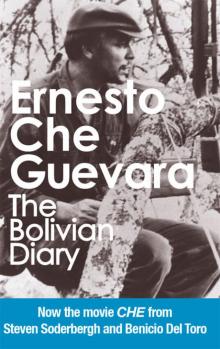 The Bolivian Diary
The Bolivian Diary Caffeine Blues_ Wake Up to the Hidden Dangers of America's #1 Drug ( PDFDrive )
Caffeine Blues_ Wake Up to the Hidden Dangers of America's #1 Drug ( PDFDrive ) The Empty House
The Empty House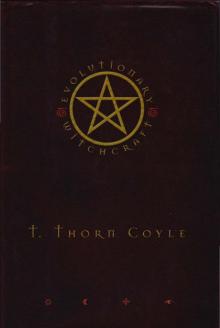 T Thorn Coyle Evolutionary Witchcraft (pdf)
T Thorn Coyle Evolutionary Witchcraft (pdf)![K J Emrick & Kathryn De Winter - [Moonlight Bay Psychic Mystery 01-06] - A Friend in; on the Rocks; Feature Presentation; Manor of; by Chocolate Cake; A-Maze-Ing Death (retail) (epub) Read online](http://freenovelread.comhttps://picture.efrem.net/img/nienyi/k_j_emrick_and_kathryn_de_winter_-_moonlight_bay_psychic_of_by_chocolate_cake_a-maze-ing_death_retail_epub_preview.jpg) K J Emrick & Kathryn De Winter - [Moonlight Bay Psychic Mystery 01-06] - A Friend in; on the Rocks; Feature Presentation; Manor of; by Chocolate Cake; A-Maze-Ing Death (retail) (epub)
K J Emrick & Kathryn De Winter - [Moonlight Bay Psychic Mystery 01-06] - A Friend in; on the Rocks; Feature Presentation; Manor of; by Chocolate Cake; A-Maze-Ing Death (retail) (epub)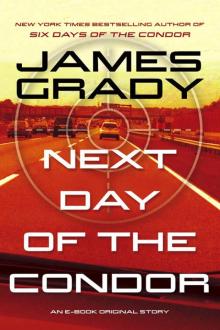 Next Day of the Condor
Next Day of the Condor Onyx
Onyx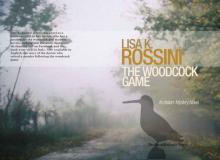 The Woodcock Game: An Italian Mystery Novel
The Woodcock Game: An Italian Mystery Novel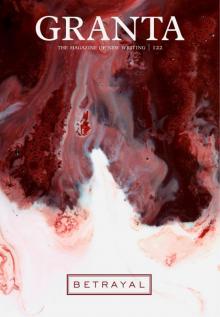 Granta 122: Betrayal (Granta: The Magazine of New Writing)
Granta 122: Betrayal (Granta: The Magazine of New Writing)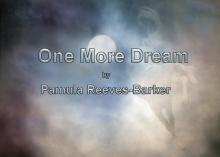 One More Dream
One More Dream Cosa Nostra by Emma Nichols) 16656409 (z-lib.org) (1)-compressed
Cosa Nostra by Emma Nichols) 16656409 (z-lib.org) (1)-compressed Cowboy by J. M. Snyder
Cowboy by J. M. Snyder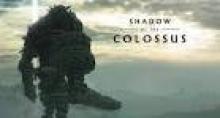 Colossus
Colossus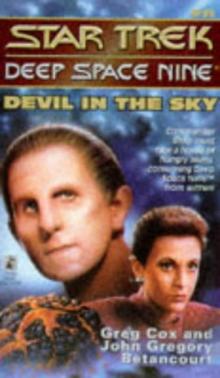 Star Trek - DS9 011 - Devil In The Sky
Star Trek - DS9 011 - Devil In The Sky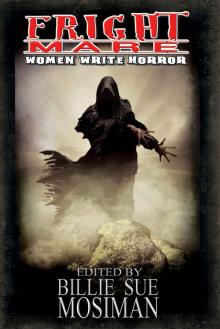 Fright Mare-Women Write Horror
Fright Mare-Women Write Horror The Future Is Japanese
The Future Is Japanese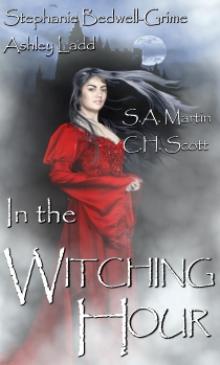 In the Witching Hour
In the Witching Hour Mammoth Books presents Wang's Carpets
Mammoth Books presents Wang's Carpets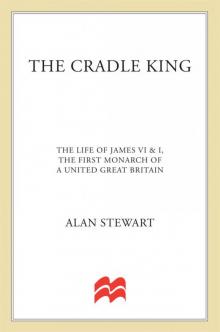 The Cradle King: The Life of James VI and I, the First Monarch of a United Great Britain
The Cradle King: The Life of James VI and I, the First Monarch of a United Great Britain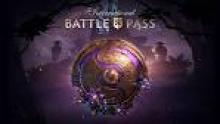 Stalking Moon
Stalking Moon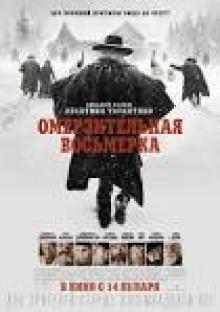 Hostage To The Devil
Hostage To The Devil![Harris, Daisy - Mere Passion [Ocean Shifters 2] (Siren Publishing Classic) Read online](http://i1.bookreadfree.com/i/03/23/harris_daisy_-_mere_passion_ocean_shifters_2_siren_publishing_classic_preview.jpg) Harris, Daisy - Mere Passion [Ocean Shifters 2] (Siren Publishing Classic)
Harris, Daisy - Mere Passion [Ocean Shifters 2] (Siren Publishing Classic) Day, Sunny - Hot in Space (Siren Publishing Ménage and More)
Day, Sunny - Hot in Space (Siren Publishing Ménage and More) Five Books Of The Lives, Heroic Deeds And Sayings Of Gargantua And His Son Pantagruel
Five Books Of The Lives, Heroic Deeds And Sayings Of Gargantua And His Son Pantagruel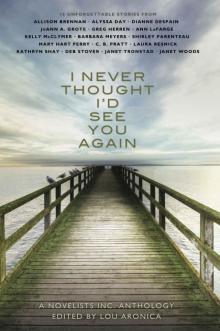 I Never Thought I'd See You Again: A Novelists Inc. Anthology
I Never Thought I'd See You Again: A Novelists Inc. Anthology Billion dollar baby bargain.txt
Billion dollar baby bargain.txt![Chenery, Marisa - Turquoise Eye of Horus [Egyptian Shifters 1] (Siren Publishing Classic) Read online](http://i1.bookreadfree.com/i1/03/26/chenery_marisa_-_turquoise_eye_of_horus_egyptian_shifters_1_siren_publishing_classic_preview.jpg) Chenery, Marisa - Turquoise Eye of Horus [Egyptian Shifters 1] (Siren Publishing Classic)
Chenery, Marisa - Turquoise Eye of Horus [Egyptian Shifters 1] (Siren Publishing Classic) Cat Magic
Cat Magic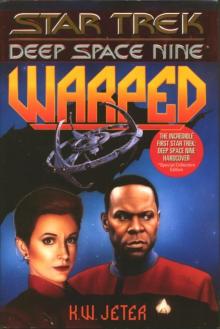 Star Trek - DS9 - Warped
Star Trek - DS9 - Warped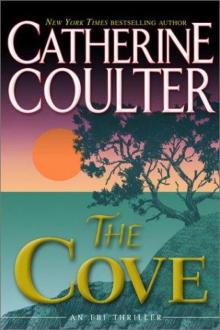 Catherine Coulter - FBI 1 The Cove
Catherine Coulter - FBI 1 The Cove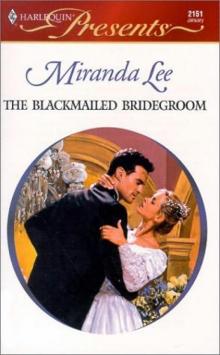 Miranda Lee -The Blackmailed Bridegroom
Miranda Lee -The Blackmailed Bridegroom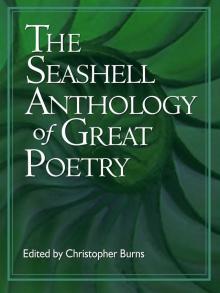 The Seashell Anthology of Great Poetry
The Seashell Anthology of Great Poetry Dragon Moon
Dragon Moon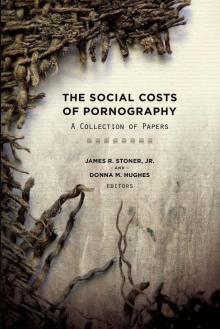 The Social Costs of Pornography: A Collection of Papers
The Social Costs of Pornography: A Collection of Papers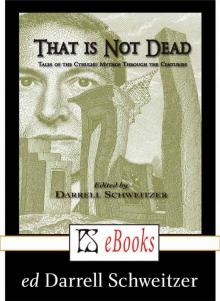 That Is Not Dead
That Is Not Dead Best New Horror: Volume 25 (Mammoth Book of Best New Horror)
Best New Horror: Volume 25 (Mammoth Book of Best New Horror) This Christmas by J. M. Snyder
This Christmas by J. M. Snyder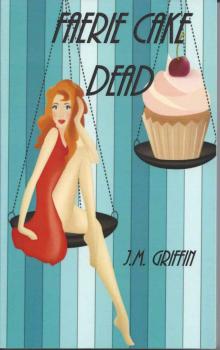 Faerie Cake Dead
Faerie Cake Dead CS-Dante's Twins
CS-Dante's Twins EFD1: Starship Goodwords (EFD Anthology Series from Carrick Publishing)
EFD1: Starship Goodwords (EFD Anthology Series from Carrick Publishing)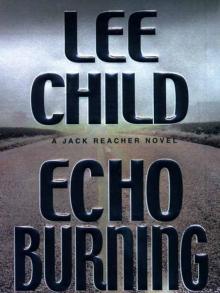 Echo Burning by Lee Child
Echo Burning by Lee Child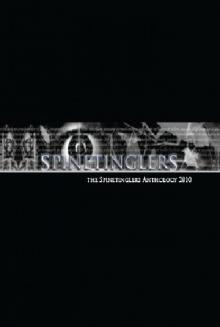 The Spinetinglers Anthology 2010
The Spinetinglers Anthology 2010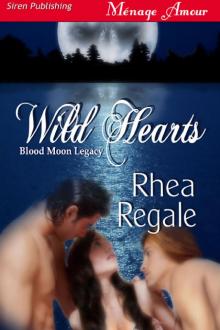 Wild Hearts
Wild Hearts Violet Winspear - Sinner ...
Violet Winspear - Sinner ...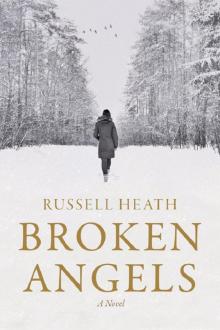 Broken Angels
Broken Angels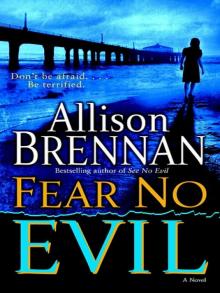 FearNoEvil
FearNoEvil![Santiago, Lara - Range War Bride [Tasty Treats 11] (Siren Publishing PolyAmour) Read online](http://i1.bookreadfree.com/i1/03/30/santiago_lara_-_range_war_bride_tasty_treats_11_siren_publishing_polyamour_preview.jpg) Santiago, Lara - Range War Bride [Tasty Treats 11] (Siren Publishing PolyAmour)
Santiago, Lara - Range War Bride [Tasty Treats 11] (Siren Publishing PolyAmour) 8 Great Hebrew Short Novels
8 Great Hebrew Short Novels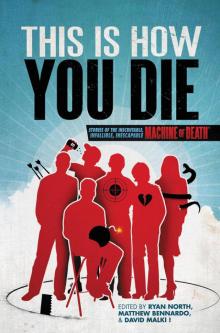 This Is How You Die: Stories of the Inscrutable, Infallible, Inescapable Machine of Death
This Is How You Die: Stories of the Inscrutable, Infallible, Inescapable Machine of Death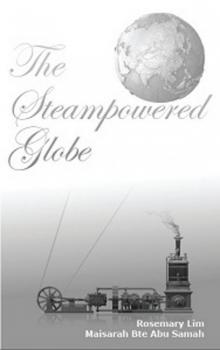 The Steampowered Globe
The Steampowered Globe While We Wait by J. M. Snyder
While We Wait by J. M. Snyder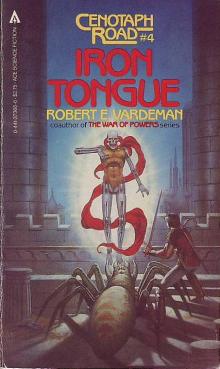 Iron Tongue cr-4
Iron Tongue cr-4![Stieg Larsson [Millennium 02] The Girl Who Played with Fire v5.0 (LIT) Read online](http://i1.bookreadfree.com/i1/03/31/stieg_larsson_millennium_02_the_girl_who_played_with_fire_v5_0_lit_preview.jpg) Stieg Larsson [Millennium 02] The Girl Who Played with Fire v5.0 (LIT)
Stieg Larsson [Millennium 02] The Girl Who Played with Fire v5.0 (LIT)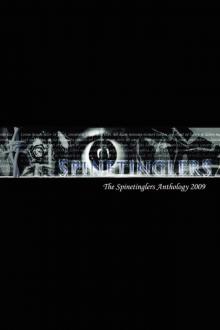 The Spinetinglers Anthology 2009
The Spinetinglers Anthology 2009 Bowles, Jan - Branded by the Texas Rancher (Siren Publishing Classic)
Bowles, Jan - Branded by the Texas Rancher (Siren Publishing Classic) Brown, Berengaria - Vivienne's Vacation (Siren Publishing Ménage and More)
Brown, Berengaria - Vivienne's Vacation (Siren Publishing Ménage and More)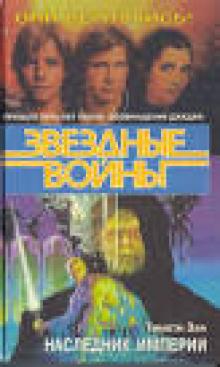 Inheritors
Inheritors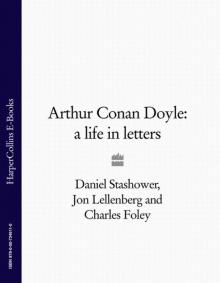 Arthur Conan Doyle: A Life in Letters
Arthur Conan Doyle: A Life in Letters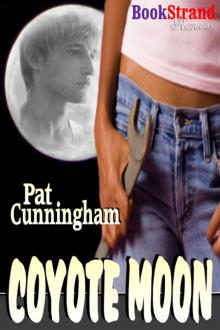 Cunningham, Pat - Coyote Moon (BookStrand Publishing Romance)
Cunningham, Pat - Coyote Moon (BookStrand Publishing Romance)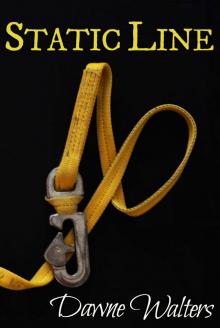 Static Line
Static Line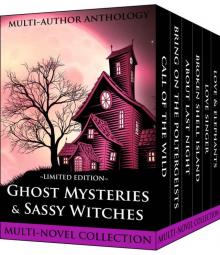 Ghost Mysteries & Sassy Witches (Cozy Mystery Multi-Novel Anthology)
Ghost Mysteries & Sassy Witches (Cozy Mystery Multi-Novel Anthology) Elizabeth Neff Walker - Puppy Love
Elizabeth Neff Walker - Puppy Love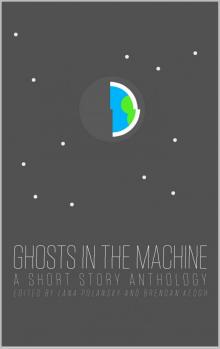 Ghosts in the Machine
Ghosts in the Machine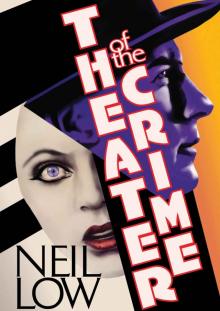 Theater of the Crime (Alan Stewart and Vera Deward Murder Mysteries Book 6)
Theater of the Crime (Alan Stewart and Vera Deward Murder Mysteries Book 6)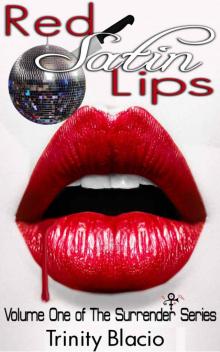 Red Satin Lips, Book One (The Surrender Series)
Red Satin Lips, Book One (The Surrender Series)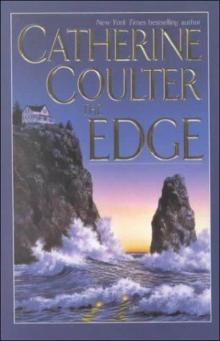 Catherine Coulter - FBI 4 The Edge
Catherine Coulter - FBI 4 The Edge StateoftheUnion
StateoftheUnion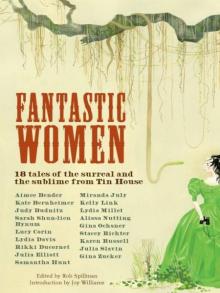 Fantastic Women: 18 Tales of the Surreal and the Sublime from Tin House
Fantastic Women: 18 Tales of the Surreal and the Sublime from Tin House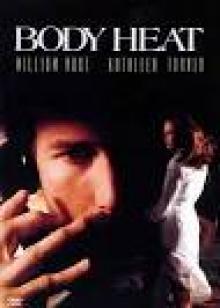 Sara Wood-Expectant Mistress original
Sara Wood-Expectant Mistress original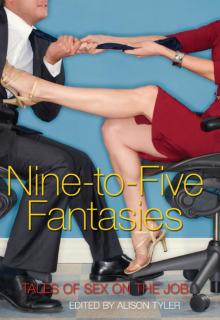 Nine-to-Five Fantasies: Tales of Sex on the Job
Nine-to-Five Fantasies: Tales of Sex on the Job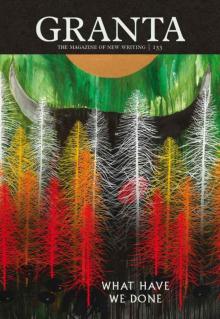 Granta 133
Granta 133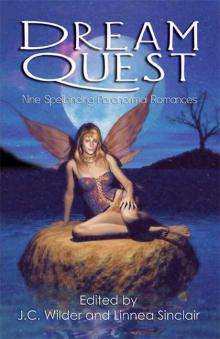 Dream Quest
Dream Quest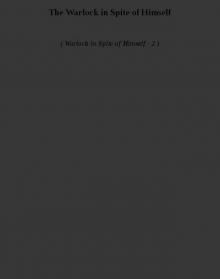 The Warlock in Spite of Himself wisoh-2
The Warlock in Spite of Himself wisoh-2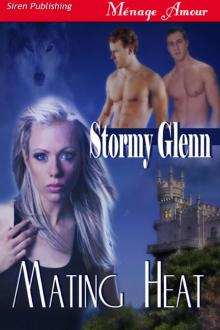 Glenn, Stormy - Mating Heat (Siren Publishing Ménage Amour)
Glenn, Stormy - Mating Heat (Siren Publishing Ménage Amour) Davis, Lexie - Toys from Santa (Siren Publishing Classic)
Davis, Lexie - Toys from Santa (Siren Publishing Classic) Once Dead, Twice Shy
Once Dead, Twice Shy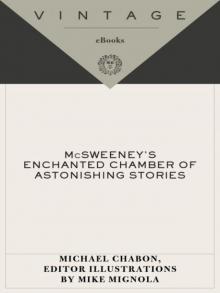 McSweeney's Enchanted Chamber of Astonishing Stories
McSweeney's Enchanted Chamber of Astonishing Stories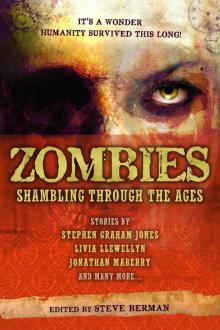 Zombies: Shambling Through the Ages
Zombies: Shambling Through the Ages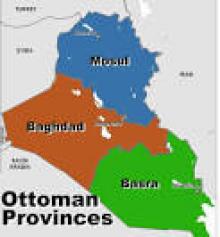 Baghdad Without a Map
Baghdad Without a Map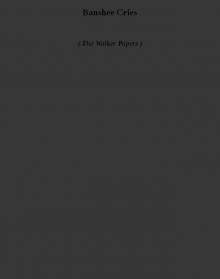 Banshee Cries (the walker papers)
Banshee Cries (the walker papers)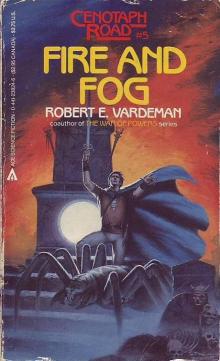 Fire and Fog cr-5
Fire and Fog cr-5 The Twelve Hot Days of Christmas
The Twelve Hot Days of Christmas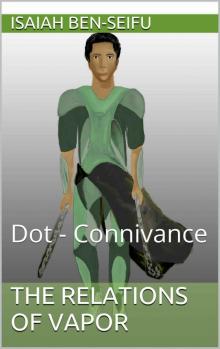 The Relations of Vapor: Dot - Connivance
The Relations of Vapor: Dot - Connivance![Harris, Daisy - Mere Temptation [Ocean Shifters 1] (Siren Publishing Classic) Read online](http://i1.bookreadfree.com/i2/04/11/harris_daisy_-_mere_temptation_ocean_shifters_1_siren_publishing_classic_preview.jpg) Harris, Daisy - Mere Temptation [Ocean Shifters 1] (Siren Publishing Classic)
Harris, Daisy - Mere Temptation [Ocean Shifters 1] (Siren Publishing Classic)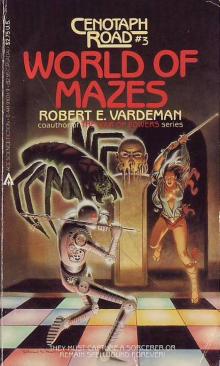 World of Mazes cr-3
World of Mazes cr-3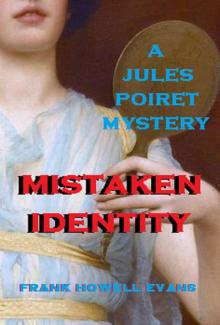 Mistaken Identity (A Jules Poiret Mystery Book 26)
Mistaken Identity (A Jules Poiret Mystery Book 26)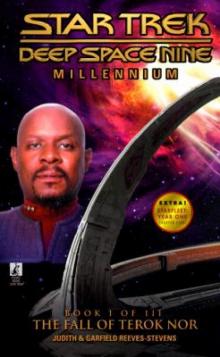 Star Trek - DS9 - Fall of Terok Nor
Star Trek - DS9 - Fall of Terok Nor Not Like I'm Jealous or Anything: The Jealousy Book (Ruby Oliver)
Not Like I'm Jealous or Anything: The Jealousy Book (Ruby Oliver) Skaterboy by J. M. Snyder
Skaterboy by J. M. Snyder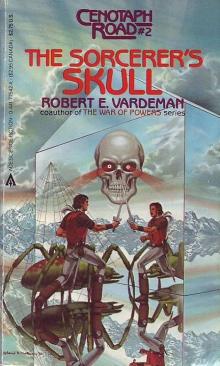 The Sorcerer_s Skull cr-2
The Sorcerer_s Skull cr-2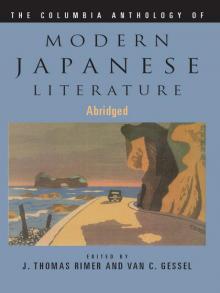 The Columbia Anthology of Modern Japanese Literature (Modern Asian Literature Series)
The Columbia Anthology of Modern Japanese Literature (Modern Asian Literature Series)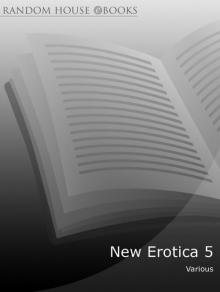 New Erotica 5
New Erotica 5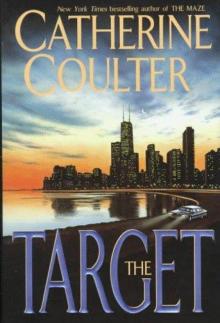 Catherine Coulter - FBI 3 The Target
Catherine Coulter - FBI 3 The Target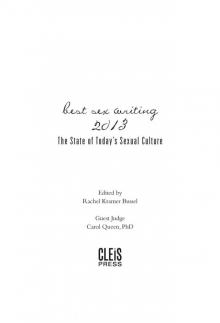 Best Sex Writing 2013: The State of Today's Sexual Culture
Best Sex Writing 2013: The State of Today's Sexual Culture Factoring Humanity
Factoring Humanity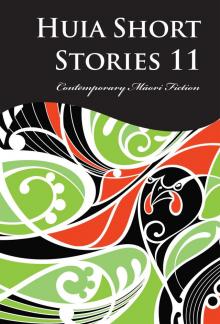 Huia Short Stories 11
Huia Short Stories 11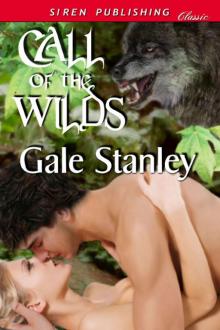 Call of the Wilds
Call of the Wilds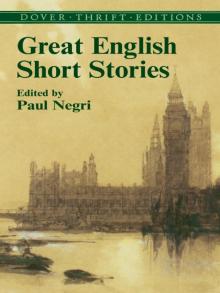 Great English Short Stories (Dover Thrift Editions)
Great English Short Stories (Dover Thrift Editions)![Ramagos, Tonya - Logan's Lessons [Sunset Cowboys 2] (Siren Publishing Classic) Read online](http://i1.bookreadfree.com/i2/04/10/ramagos_tonya_-_logans_lessons_sunset_cowboys_2_siren_publishing_classic_preview.jpg) Ramagos, Tonya - Logan's Lessons [Sunset Cowboys 2] (Siren Publishing Classic)
Ramagos, Tonya - Logan's Lessons [Sunset Cowboys 2] (Siren Publishing Classic)![Morgan, Nicole - Sweet Redemption [Sweet Awakenings 1] (Siren Publishing Allure) Read online](http://i1.bookreadfree.com/i2/04/10/morgan_nicole_-_sweet_redemption_sweet_awakenings_1_siren_publishing_allure_preview.jpg) Morgan, Nicole - Sweet Redemption [Sweet Awakenings 1] (Siren Publishing Allure)
Morgan, Nicole - Sweet Redemption [Sweet Awakenings 1] (Siren Publishing Allure)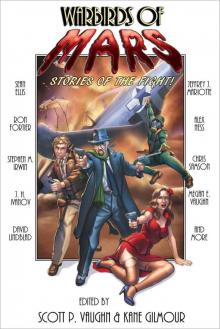 Warbirds of Mars: Stories of the Fight!
Warbirds of Mars: Stories of the Fight!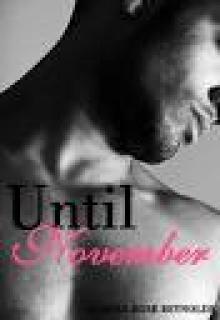 Original Version of Edited Godwin Stories(lit)
Original Version of Edited Godwin Stories(lit)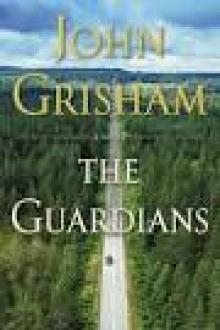 Where The Hell is Boulevard?
Where The Hell is Boulevard?![Chemical [se]X Read online](http://i1.bookreadfree.com/i2/04/13/chemical_sex_preview.jpg) Chemical [se]X
Chemical [se]X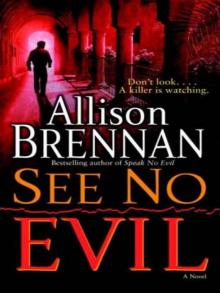 Allison Brennan - See No Evil
Allison Brennan - See No Evil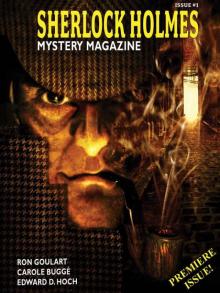 Sherlock Holmes Mystery Magazine #1
Sherlock Holmes Mystery Magazine #1